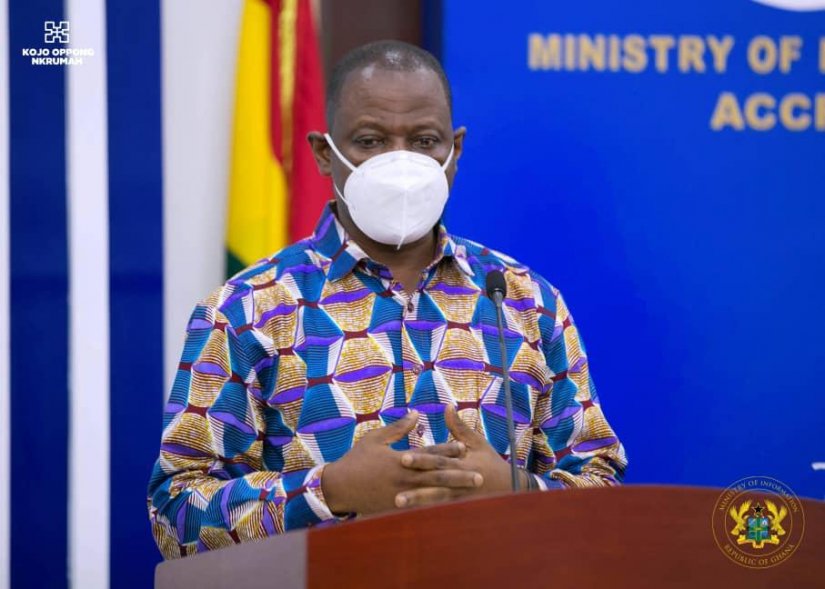
Dr Patrick Kuma-Aboagye, Director-General of the Ghana Health Service (GHS) on Tuesday, said the country is currently doing an average test of about 400 new cases of COVID-19 daily.
Dr Kuma-Aboagye presented graphical statistics showing an increasing trend in the number of new COVID-19 infections particularly, in some districts across four regions over the past one week.
He, however, said these increases were quickly contained by the team of contact tracers, through isolation, testing, and treatment.
He stated that the graphical decreases expected in the number of new cases recorded would begin to show when optimal compliance regarding the strict adherence to all the preventive and safety protocols were achieved and observed by all.
Dr Kuma-Aboagye who disclosed this at the bi-weekly press briefing organised by the Ministry of Information in Accra called for massive stakeholder involvement and support in sustaining public education.
He explained that there was a challenge with the delay in securing the required logistics for testing, which caused the late release of results from the backlog of samples tested between June 26 and July 3, 2020.
Ghana’s COVID-19 case count, he said, had risen to 21,968 after the GHS confirmed 891 new infections across the country, and these were confirmed in 72 districts across 13 regions of the country.
The Greater Accra Region alone recorded the highest of 579 fresh cases from 24 districts, including Ayawaso West, Accra Metro, Ayawaso East, Ayawaso Central, Ledzokuku, La Nkwantanang and Tema among others.
According to Dr Kuma-Aboagye the Ashanti Region recorded 93 new cases from 18 districts, with Western Region also confirming 86 fresh infections from five districts, while the Bono Region also confirmed 49 from six districts.
The rest were: Northern- 26; Central- 25; Eastern- 18; Western North- four; Savannah- four Upper West- three; Oti-two; Bono East-one and Volta-one.
Dr Kuma-Aboagye reiterated earlier calls to step-up surveillance and checks for the strict adherence of the protocols especially, in areas around the coasts such as the beaches.
He noted that no country would be able to deal with the COVID-19 pandemic without the support of its people, hence, the need for all persons to remain responsible not only for their health care but that of others.
Currently, a total of 1,079 persons have so far recovered had been discharged, bringing the country’s total recoveries to 17,156, but 129 persons have died, while 22 others were still in severe conditions, six more in critical condition and five were currently on ventilators, he said.
Dr Kuma-Aboagye said this leaves an active caseload of 4,683 persons who were being managed in treatment sites, isolation centres across the country, and under home management.
SOURCE
GNA
